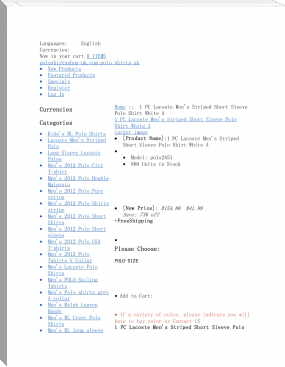The Ghost Kings, H. Rider Haggard [best thriller books to read TXT] 📗

- Author: H. Rider Haggard
Book online «The Ghost Kings, H. Rider Haggard [best thriller books to read TXT] 📗». Author H. Rider Haggard
Scarcely was she ready than they entered the hut, saluting her and bringing more food. Rachel ate, then bade one of them say to the captain of the impi that she was ready to start. Presently the girl returned with the message that all was prepared. She walked from the kraal to find her mare, which had been well fed and groomed by Tamboosa, who had seen horses in Natal, and knew how they should be treated, saddled and waiting, whilst before and behind it, arranged as on the previous day, stood the warriors, who received her in dead, respectful silence.
She mounted, and the procession went forward. With a two hours' halt at midday they marched on over hill and dale, passing many villages of beehive-shaped huts. As they came the inhabitants of these places deserted them and fled, crying _"Nomkubulwana! Nomkubulwana!"_ It was evident to Rachel that the tale of the death of the Isanuzi had preceded her, and they feared lest, should they cross her path, her fate would be their fate. Indeed, one of the strangest circumstances of this strange adventure was the complete loneliness in which she lived. Except those who were actually ordered to wait upon her, none dared come near to Rachel; she was holy, a Spirit, to approach whom unbidden might mean death.
At nightfall they reached another empty kraal, where again she slept alone. When they left it in the morning she called Tamboosa to her and asked him at what hour they would come to Dingaan's great town, Umgugundhlovo, which means the Place of the trumpeting of the Elephant. He answered, at sunset.
So she rode on all that day also till as the sun began to sink, from a hill whereon grew large euphorbia trees, on a plain backed by mountains, she saw the town surrounded by a fence, inside of which were thousands of huts, that in their turn surrounded a great open space. Now they pushed forward quickly, and as darkness fell approached the main gate of the place, where, as usual, there was no one to be seen. But here they did not enter, marching on till they came to another gate, that of the Intunkulu, the King's house, where, their escort done, the regiment turned and went away, leaving Rachel alone with the envoy, Tamboosa, who still led the white ox. They entered this gate, and presently came to a second. It was that of the Emposeni, the Dwelling of the King's wives, out of which appeared women crawling on the ground before Rachel, and holding in their left hands torches of grass. These undid the baggage from the ox, and at their signals, for they did not seem to dare to speak to her, Rachel dismounted. Thereon Tamboosa saluted her, and taking the horse by the bridle, led it away with the ox.
Then Rachel felt that she was indeed alone, for Tamboosa at any rate had seen her home, which now was so far away. Still proudly enough she followed the women, who, bent double as before, led her to a great hut lit by a rude lamp filled with melted hippopotamus fat, where they set down her bags, and departed, to return presently with food and water.
Having washed off the dust of her long journey, and combed out her hair, Rachel ate all she could, for she was hungry, and guessed that she might need her strength that night. Then she lay down upon a pile of beautiful karosses that had been placed ready for her, and rested. An hour or more went by, and just as she was beginning to fall asleep the door-board of the hut was thrust aside, and a tall woman entered, who knelt to her and said:
"Hail, Inkosazana! The King asks whether it be thy pleasure to appear before him this night."
"It is my pleasure," answered Rachel; "for that purpose have I travelled here. Lead me to the King."
So the woman went out of the hut, Rachel following her to find that the moon shone brightly in a clear sky. The woman conducted her through tortuous reed fences, until presently they came to an open court where, in the shadow of a hut, sat a number of men wrapped about with fur karosses. Guessing that she was in the presence of Dingaan, Rachel drew her white cloak round her tall form and walked forward slowly, till she reached the centre of the space, where she stopped and stood quite still, looking like a ghost in the moonlight. Then all the men to right and left rose and saluted her silently by the uplifting of one arm; only he who was in the midst of them remained seated and did not salute. Still she stayed motionless, uttering no word for a long while, six or seven minutes, perhaps. Her silence fought against theirs, and she knew that the one who spoke first would own to inferiority.
At length, in answering salutation, she lifted the little wand of white horn that she carried and turned slowly as though to leave the place, so that now the moonlight glistened on her lovely hair. Then, fearing perhaps lest she should depart or vanish away, the man seated in the centre said in a low half-awed voice:
"I am Dingaan, King of the Amazulu. Say, White One, who art thou?"
"By what name am I known here, O Dingaan the King?" she replied, answering the question with a question.
"By a high name, White One, a name that is seldom spoken, the name of Inkosazana-y-Zoola, the title of Nomkubulwana, the Spirit of our people. How camest thou by that name?"
"My name is my name," she said.
"We know, White One; the wind has borne all that story through the land, it whispers it from the leaves of the forest and the reeds of the water and the grass of the plains. We know that the Heavens gave thee their own name, O Child of Heaven, O Holder of the Spirit of Nomkubulwana."
"Thou sayest it, King. I do not say it, thou sayest it."
"I say it, and having seen thee I know that it is true, for thy beauty, White One, is not the beauty of woman alone, although still thou beest woman. Now I confirm to thee the words my messengers bore thee in past days. Here, with me, thou rulest. The land is thine, my impis wait thy word. Death and life are in thy hands; command, and they go forth to slay; command, and they return again. Only thou rulest alone with me, and the black folk, not the white, shall be thy servants."
"I hear thee, King. Now, as a first fruit, give to me Noie, daughter of Seyapi, my slave whom the soldiers stole away from Ramah beyond the river where I dwell."
"She is dead, White One, she is dead for her crimes," answered Dingaan, looking at her.
Now Rachel's heart sank in her, for it might well be that a trick had been played on her, and that this was true. Or perhaps this tale of Noie's death was but a trap to test her powers; moreover, it was not likely that the King, who had promised that she should live, would dare to break his word to one whom he believed or half-believed to be a spirit.
For a moment she thought; then, after her nature, determined to be bold and hazard all upon a throw. Therefore she did not argue or reproach, but said:
"She is not dead. I have questioned every spear in Zululand, and none of them is red with her blood."
"Thou art right," he answered; "the spears are clean. She died in the river."
Now Rachel was sure, and answered in her clear voice:
"I have questioned the waters, and I have questioned the crocodiles, and they answer that Noie has passed them safely."
"Thou art right, White One. She died by a rope in yonder huts."
Now Rachel looked at the huts and cried:
"Noie, I hear thee, I see thee, I smell thee out. Come forth, Noie."
The King and his councillors stared at her, whispering to one another, and before ever they had done their whisperings out from among the gloom of the huts crept Noie.
To Rachel she crept, taking no heed even of the King, and crouching down in the faint shadow of her that the moonlight threw, she flung her arms about her knees and pressed her forehead on her feet. Now Rachel's heart bounded with joy at the sight of her, and she longed to bend down and kiss her, but did not, lest her great dignity should be lessened in the eyes of the King; only she said:
"I greet you, Noie; be seated in my shadow, where you are safe, and tell me, have these men dealt well by you?"
"Not so ill, Inkosazana, that is since I reached the Great Kraal. But one of them, he who sits yonder," and she pointed to a certain induna, "struck me on the journey, and took away my food."
Now Rachel looked at the man angrily, playing with the little wand in her hand, whereon this induna shivered with terror, fearing lest she should point it at him. Rising, he came to Rachel and flung himself down before her.
"What have you to say," asked Rachel, "you who have dared to strike my servant?"
"Inkosazana," he mumbled, "the maid was obstinate, and tried to run away, and our orders were to bring her to the King. Spare my life, I pray thee."
"King," said Rachel, "I have power over this man, have I not?"
"It is so," answered Dingaan. "Kill him if thou wilt."
Rachel seemed to consider while the poor wretch, with chattering teeth, implored her to forgive. Then she turned to Noie, saying:
"He struck you, not me. I give him to you to do by as you will. Shall he sleep to-night with the living or the dead?"
Noie looked at him, and next at a mark on her arm, and the induna, ceasing from his prayers to Rachel, clutched Noie by the ankle, and begged her mercy.
"Your life has been given to you," he said, "give mine to me, lest ill-fortune follow you."
"Do you remember," asked Noie contemptuously, "how, when you had beaten me, yonder by the Tugela, you said you hoped that it would be your luck to put a spear through this heart of mine? And do you remember that I answered you that the spear would be over your own heart first, and that thereon you called me 'Daughter of Wizards' and struck me again--me, the child of Seyapi, upon whom the mantle of the Inkosazana lies, me who have drunk of her wisdom and of his--you struck me, you dog," and lifting her foot she spurned him in the face.
Now the King and his company, concluding that the thing was finished, glanced at Rachel to see her point with the rod and thus give the man to death. But Rachel waited, sure that Noie had not done. Moreover, whatever Noie might say, she had determined to save him.
Meanwhile, the girl, after a pause, said:
"Were you a man you would be too proud to ask your life of me, but you are a dog; and, Dog, I remember that you have children, among them a daughter of my own age, whom, I saw come out to greet you. For her sake, then, take your life, and with it this new name that I give you--'Soldier-who-strikes-girls.'"
So the man rose, and weak with shame and the agony of suspense, crept swiftly from the place, fearing lest the Inkosazana or her servant might change her mind and kill him after all. But Noie's name clung to him so closely that at length, unable to bear the ridicule of it, he and his family fled from Zululand.
So this matter ended.
Now the King spoke, saying:
"White One, thy magic is great, and thine eyes could pierce the darkness and see thy servant hidden, and call her forth to thee. Yet know, she





Comments (0)